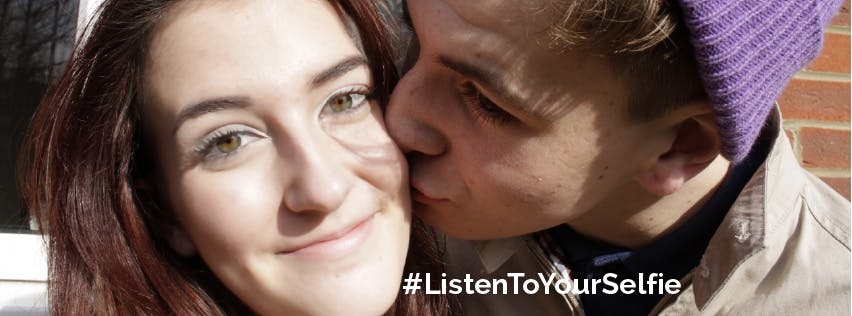Childline Relaunch #ListenToYourSelfie To Combat Peer-On-Peer Sexual Abuse
updated on Sep 19, 2018

Childline's #ListenToYourSelfie campaign relaunched following concerns around peer-on-peer sexual abuse and confusion about consent
Childline, a free and confidential counselling service for young people run by the NSPCC, has relaunched its #ListenToYourSelfie campaign to reduce peer-on-peer sexual abuse and encourage teenagers who have been sexually abused by their peers to speak out.
Such abuse is thought to be on the rise, with Childline delivering 3,878 counselling sessions with young people concerned about the issue in 2017/18 - a 29% increase on the previous year.
To help to educate teens about abuse and consent, Childline’s #ListenToYourSelfie campaign includes a project created in collaboration with the International Centre for Child Protection, at the University of Kent called ‘Looking Out for Lottie’. Lottie’s story can help young people to recognise the early signs of grooming.
The #ListentoYourSelfie campaign also includes two short films intended to support young people and to reinforce their right to say no to any situation that may make them feel uncomfortable or anxious.
It is thought that one of the underlying issues around the increase in peer-to-peer abuse may be a lack of understanding about consent, and confusion as to whether an act can be abusive, if both people involved are in a relationship.
One girl, aged 14, said: "My boyfriend is sometimes violent towards me and recently he’s forced me into doing sexual things when I didn't want to. It wasn't always this way but it’s been going on for a few weeks now and I'm worried it's going to get worse. I'm scared of how he would react if I tried to end the relationship. I don't feel like I can speak to someone without my parents or friends at school finding out. I'm really scared."
As a result of this reported confusion about consent and abuse, the NSPCC is calling for both Relationships Education in primary schools (RE) and Relationships and Sex Education in secondary schools (RSE) to cover what abuse is and how to recognise its signs.
Dame Esther Rantzen, Founder and President of Childline said: "Young people tell us that they have been compelled to take part in behaviour against their will, which sometimes involves them suffering violence.
"We know that relationships can be confusing and it can be hard to know if the dynamic is changing and things are starting to go wrong.
"If you ever feel pressured to do something you don’t want to, we urge you to get support, either from a friend, a trusted adult or Childline. The Childline service is confidential, and you can contact us via our message board on our website."
Any child worried about peer sexual abuse can call Childline on 0800 11 11. Any adult who is concerned about a child can call the NSPCC Helpline on 0808 800 5000.
Visit Counselling Directory to find local support and counsellors near you

